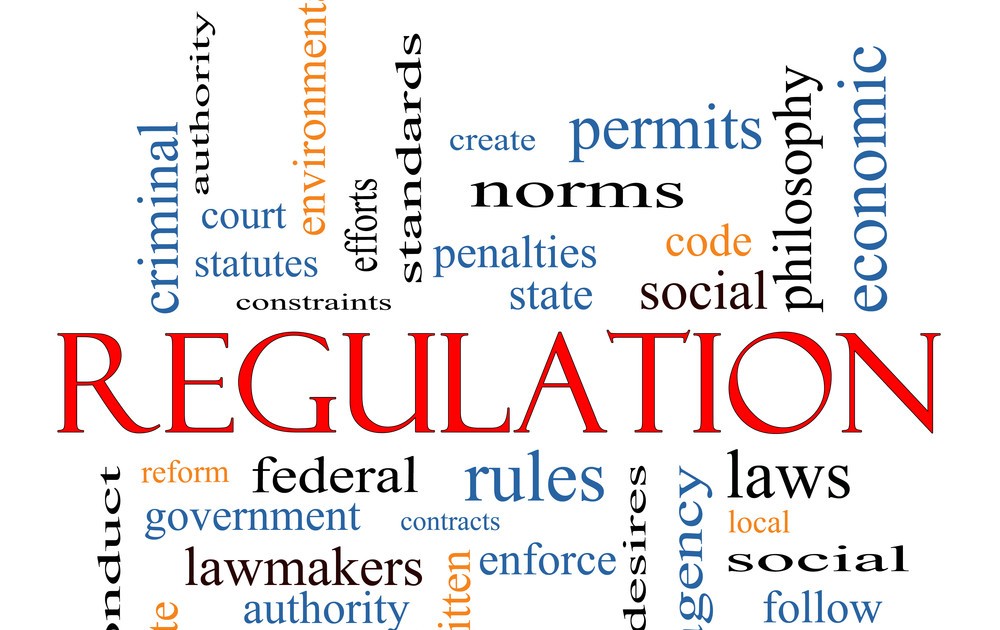SEC Settles Aiding and Abetting Charges Against Joseph Apuzzo
On September 8, 2015, Judge Alvin Thompson of the U.S. District Court for the District of Connecticut entered a judgment against Joseph Apuzzo, former Chief Financial Officer of Terex Corporation. Apuzzo consented, without admitting or denying the allegations in the SEC’s complaint, to be permanently enjoined from violation of Sections 10(b) and 13(b)(5) of the Securities and Exchange Act of 1934 (“Exchange Act”) and Rules 10b-5 and 13b2-1 thereunder, and from aiding and abetting violation of Sections 13(a) and 13(b)(2)(A) of the Exchange Act and Rule 13a-1 thereunder, and to pay a penalty of $100,000.
Upon motion by the SEC, Judge Thompson will determine whether to impose an officer and director bar against Apuzzo. Apuzzo, who was a Certified Public Accountant at the time of the alleged fraudulent conduct, has further agreed to the entry of an SEC order suspending him from appearing as an accountant before the SEC, with a right to apply for reinstatement after five years. The SEC issued such an Order on September 16, 2015. Read More
Anthony Knight Barred, Enjoined, and Fined for Unregistered Securities
 On Thursday, September 3, 2015, United States District Court Judge Denis R. Hurley of the United States District Court for the Eastern District of New York issued an order and judgment imposing relief against Defendant Anthony Knight, the former Chairman of failed Long Island-based internet startup, iShopNoMarkup.com, Inc.
On Thursday, September 3, 2015, United States District Court Judge Denis R. Hurley of the United States District Court for the Eastern District of New York issued an order and judgment imposing relief against Defendant Anthony Knight, the former Chairman of failed Long Island-based internet startup, iShopNoMarkup.com, Inc.
Judge Hurley ordered Knight to pay $2.3 million in disgorgement, over $2.5 million of prejudgment interest, and a $330,000 civil penalty. Read More
Consultant Charged With Insider Trading
On September 23, 2015, the Securities and Exchange Commission (SEC) charged a consultant and his friend with insider trading in the options of P.F. Chang’s China Bistro based on nonpublic information about an impending acquisition offer.
The SEC claims that Richard G. Condon, a consultant to Panda Restaurant Group, tipped Jonathan Ross with confidential details about the bidding process for P.F. Chang’s that he learned while providing executive coaching services to Panda’s top management executives. Panda was involved in the bidding process, but did not ultimately make a tender offer for P.F. Chang’s. Read More
SEC Announces New Resource – Going Public Attorneys
 Posted By the Going Public Attorneys
Posted By the Going Public Attorneys
On September 24, 2015, the Securities & Exchange Commission (SEC) announced a new resource on its website that is designed to enhance transparency by providing information about the SEC proposals and rulemaking in a single location. The SEC’s new online resource will streamline information making it easier for investors and market participants to follow specific rules or rulemaking programs.
The SEC’s new page provides links to releases concerning SEC rulemaking activity, including concept releases, proposed rules, final rules, interpretive releases, and policy statements. It also links to announcements concerning SRO rulemaking, PCAOB rulemaking, instructions for Exchange Act Exemptive Applications, other SEC notices, and public petitions for rulemaking submitted to the SEC. Read More
Former Fannie Mae Executives Resolve Subprime and Reduced Documentation Disclosure Case with SEC
The Securities and Exchange Commission (SEC) announced on September 22, 2015 that the Honorable Paul A. Crotty of the United States District Court for the Southern District of New York has entered an Order approving a stipulation and agreement between the SEC and defendants Enrico Dallavecchia, the former Chief Risk Officer of Fannie Mae, and Thomas Lund, Fannie Mae’s former Senior Vice President and head of its single-family guarantee business.
The Order resolves the SEC’s case against defendants Dallavecchia and Lund deriving out of the respective parts each had in Fannie Mae’s disclosure of its exposure to subprime and reduced documentation mortgage loans between December 6, 2006 and August 8, 2008. Read More
SEC v. Two Men Who Defrauded Investors
On September 21, 2015 the Securities and Exchange Commission (SEC) charged two men behind a scheme that defrauded investors in YaFarm Technologies Inc., a company that purported to provide stem cell therapy.
The SEC’s complaint filed in federal court in Boston charged Frank Morelli III, of Florence, Colorado, and Louis Buonocore, of Woburn, Massachusetts, for their roles in the alleged scheme. In a parallel case, the U.S. Attorney’s Office for the District of Massachusetts filed a criminal information against Buonocore on September 21, 2015.
According to the SEC’s complaint, Morelli and Buonocore concealed their ownership of virtually all of YaFarm’s stock, secretly controlled its operations, and paid stock promoters in 2013 to tout it as a legitimate company with growing operations. The SEC also alleges that the two caused YaFarm to issue materially false and misleading information about business developments that did not exist, including a March 2013 press release announcing an insinuated partnership with the Integrative Stem Cell Institute. Read More
SEC Charges Penny Stock Company and CEO with Fraud and Issuing a False Press Release
On September 15, 2015, the Securities and Exchange Commission (SEC) charged a microcap issuer, The Mobile Star Corporation, and its CEO George Ivakhnik, with defrauding investors by issuing false press releases about the company’s business and prospects.
The SEC claims that shortly after Ivakhnik became CEO of the company in the spring of 2012, he began concocting and issuing press releases that had no factual basis. These press releases portrayed a company with considerable financial acumen and resources actively engaged in a wide variety of business ventures including: a ski resort, the manufacture of karaoke booths, the funding of an “event center” in Long Beach, California, and an agreement with a “major higher education institution” to provide financial consulting expertise” and to help “restructure and secure financing.” Read More
SEC Obtains Final Judgement Against Julio Cruz for Targeting Latino Communities with Pyramid Scheme
On September 17, 2015, the Securities and Exchange Commission (SEC) announced that on September 16, 2015, the federal court in Boston, Massachusetts, entered a final judgment against defendant Julio Cruz of Duluth, Georgia, a defendant in a previously-filed actio. On February 2015, the (SEC) charged two Portuguese companies operating under the name Wings Network, plus three company officers and 12 promoters of Wings Network, including Cruz, with carrying out an international pyramid scheme targeting Latino communities in the U.S.
In settling the SEC’s charges, Cruz confessed that he was a promoter of defendants Tropikgadget Unipessoal LDA and Tropikgadget FZE, which operated under the name Wings Network, appearing in promotional videos on the internet and traveling to several states, including Texas, during 2014 to present at Wings Network promotional events. Cruz also confessed that while in Texas he solicited friends to attend a Wings Network presentation given by Wings Network principal Carlos Barbosa, who lauded the Wings Network opportunity. Barbosa is also a defendant in the SEC’s enforcement action. Read More
James Meagher Enjoined in Penny Stock Case
The Securities and Exchange Commission (SEC) announced on September 16, 2015 that Chief Judge Gregory M. Sleet of the United States District Court for the District of Delaware entered a final default judgment against Defendant James Meagher on September 14, 2015 in SEC v. Dynkowski, et al., Civil Action No. 1:09-361, a penny stock manipulation case the SEC filed on May 20, 2009.
The SEC’s complaint alleged that Meagher engaged in a market manipulation scheme involving the stock of Xtreme Motorsports of California, Inc., which made about $257,000 in illegitimate earnings. Read More
SEC Charges Robert Milligan With Securities Fraud

The Securities and Exchange Commission (SEC) announced on September 18, 2015 charges against Robert DeWayne Milligan, who was president of a California-based business known as America’s Natural Energy (“ANE”), for engaging in the fraudulent offering of unregistered securities.
According to the SEC’s complaint filed in the U.S. District Court for the Central District of California, from at least May 2010 through May 2014, Milligan raised over $1.3 million from approximately 39 investors in multiple states for ANE, which he represented to be a business engaged in oil and gas exploration in the Williston Basin of North and South Dakota. According to the complaint, ANE was, in reality, primarily a scheme that Milligan used to fund his personal lifestyle, which included cash withdrawals, gambling, travel, and shopping. Read More
Eric McPhail Sentenced in Insider Trading Action
The Securities and Exchange Commission (SEC) announced that, on September 18, 2015, Eric McPhail was sentenced to 18 months in prison and two years of supervised release for his role in an insider trading ring that traded inside information about Massachusetts-based American Superconductor Corporation. McPhail had previously been found guilty by a jury of criminal charges of conspiracy and securities fraud for his conduct. The criminal charges against McPhail arose out of the same conduct that is the subject of a civil insider trading action filed by the SEC against McPhail and others in July 2014.
The U.S. Attorney’s Office for the District of Massachusetts indicted McPhail and another defendant, Douglas Parigian, in a Superseding Information dated May 11, 2015, related to the insider trading ring. The Information charged that McPhail had a history, pattern and practice of sharing confidences with an individual who had material, nonpublic information concerning American Superconductor’s quarterly earnings and other business activities (the “Inside Information”). This individual provided McPhail with the inside information with the understanding that it would be kept confidential. Read More
SEC Charges Florida Based CPA For Bogus Audit Opinions
On September 17, 2015 the SEC imposed sanctions against a Florida based CPA for producing deficient and fraudulent audits and quarterly reviews for eight publicly traded companies, issuing false and misleading audit opinions on the companies’ annual financial statements.
Terry L. Johnson, of Casselberry, Florida, agreed to settle the SEC charges on fraud and will be suspended from practicing as an accountant on behalf of any publicly traded company or other entity regulated by the SEC.
During the investigation, the Commission discovered that following his release from prison, convicted felon and former certified public accountant Stephen P. Corso, of Encinitas, California, served as the Chief Financial Officer of several publicly-traded companies, including Primco Management, Inc., one of Johnson’s audit clients. Corso signed Primco’s annual and quarterly financial reports and certifications filed with the SEC using the alias names “Steven J. Corso” or “Steven John Corso”. Corso was barred in 2009 from appearing and practicing before the SEC as an accountant due to his felony conviction for wire fraud and attempted tax evasion. Corso is also alleged to have solicited business on the false pretense that he was an “SEC Consultant and Attorney.” Corso acquired more than $460,000 in illegal profits generated from his violation of the prior SEC order.
U3 Halt of SWK Holdings Explained by FINRA, and Lifted Quickly
We recently wrote about a bungled dividend distribution made by Calissio Resources Group, Inc. (CRGP) that resulted in the imposition of a U3 “extraordinary event” trading halt by the Financial Industry Regulatory Authority (“FINRA”). The halt was lifted two weeks later. FINRA offered no explanation for the action. U3 halts are rare for domestic issuers, and usually have to do with problems, actual or potential, with clearance and settlement.
On September 16, 2015, FINRA applied a U3 halt to another OTC issuer, SWK Holdings Corporation (SWKH). The action came a little more than 20 minutes into the trading session, at 9:53 a.m. Once again, shareholders were left wondering what had happened, but they didn’t have to wonder for long: FINRA quickly furnished a UPC advisory addressing the reasons for the halt. The regulator stated that it had been brought “because of issues related to perceived post-split trading and subsequent price adjustments,” adding that “members are reminded to observe Ex-Dividend dates announced by FINRA on the Daily List.”
While that may have seemed opaque to some, a quick look at recent SEC filings made by SWKH clarified what the regulator meant. More than two hours before the bell, the company posted a Form 8-K to Edgar, in which it explained that “the previously disclosed 1-for-100 reverse stock split of its common stock, immediately followed by a 10-for-1 forward stock split of its common stock was executed effective as of 5:00 p.m. on September 15, 2015. Beginning with the opening of trading on September 16, 2015, the Company’s common stock will trade on OTC Markets on a post-split basis…” Read More
FINRA’s Disclosure Requirements In EB-5 Offerings
FINRA Rule 2040 became effective late last month and has the potential to provide increased transparency in EB-5 Offerings. Rule 2040 requires broker-dealers who sell securities in EB-5 offerings to disclose finder’s fees paid to non-registered foreign persons and receive written acknowledgement from the investors that such fees were disclosed to them. FINRA Rule 2040 also limits the circumstances under which a foreign person may be paid a finder’s fee.
FINRA only permits broker-dealers to pay transaction based compensation to non-registered foreign finder if the finders’ activity is limited to an initial referral, and the broker-dealer complies with the following requirements:
- the broker-dealers has assured itself that the finder who will receive the compensation is not required to register in the U.S. as a broker-dealer nor is subject to a disqualification as defined in Article III, Section 4 of FINRA’s By-Laws, and has further assured itself that the compensation arrangement does not violate applicable foreign law;
- the finder is non U.S. citizen or foreign entity domiciled outside the U.S.;
- the investors are non U.S. citizens or foreign entities domiciled abroad transacting business in either foreign or U.S. securities;
- investors are given a disclosures, similar to those required by Rule 206(4)-3(b) of the Investment Advisers Act of 1940, that disclose what compensation is paid to finders;
- investors provide written acknowledgment to the broker-dealers of the existence of the finder’s fee agreement and the acknowledgment is retained by the broker-dealer and made available for inspection by FINRA;
- records reflecting payments made to finders are maintained on the broker-dealer’s books, and written agreements between the broker-dealers and the finder are available for inspection by FINRA; and
- the confirmation of each investment indicates that a finders fee is being paid pursuant to the written agreement between the finder and the broker-dealer.
Investor Alert – Messaging Apps & Pump and Dump Scams
On September 2, 2015, the Financial Industry Regulatory Authority (FINRA) issued an investor alert warning about investor relations activity and stock promotions sent through popular messaging applications (Apps) such as WhatsApp. These messaging Apps allow users to almost instantly exchange messages which makes them appealing tools for scammers engaged in pump and dump schemes seeking to trick investors.
According to FINRA’s investor alert, scammers use messaging apps to transmit spam messages that promote penny stocks or microcap stocks. They used spam activity disseminated over WhatsApp as an example. Recently, WhatsApp users were flooded with text messages touting Avra, Inc. (AVRN), a penny stock. The App messages appeared to be sent from individuals at well-known brokerage firms. Using only a first name (“Hi it’s Will at XYZ firm…”), the text would talk up the stock. One WhatsApp message claimed AVRN was “going to double in the next few days.” Another said it “is going up 300% next week.”
MusclePharm Charged In SEC Investigation
On September 8, 2015, the Securities and Exchange Commission (SEC) charged a sports supplements and nutrition company with committing a series of accounting and disclosure violations, including the failure to properly report perks provided to its executives as compensation. MusclePharm Corporation agreed to settle the charges along with three current or former executives and the company’s former audit committee chair who were found to have been involved in various aspects of the company’s misconduct.
An SEC investigation found that MusclePharm omitted or understated nearly a half-million dollars’ worth of perks bestowed upon its executives, including approximately $244,000 paid to CEO Brad Pyatt related to automobiles, apparel, meals, golf club memberships, and his personal tax and legal services. Even after the company began an internal review of undisclosed executive perks and then-audit committee chair Donald Prosser became directly involved in the process, MusclePharm continued filing financial statements that failed to disclose private jet use, vehicles, and golf club memberships for its executives. Read More
SEC Charges Bankrate and Former Executives with Securities Fraud
On September 8, 2015, the Securities and Exchange Commission (“SEC”) announced that Bankrate Inc. has agreed to pay $15 million to settle accounting and securities fraud charges. Three former executives also are charged in the case that involves fraudulent manipulation of the company’s financial results to meet analyst expectations.
The Commission alleges that Bankrate’s then-CFO Edward DiMaria, then-director of accounting Matthew Gamsey, and then-vice president of finance Hyunjin Lerner engaged in a scheme to fabricate revenues and avoid booking certain expenses in order to meet analyst estimates for two key financial metrics: adjusted earnings per share as well as adjusted earnings before interest, taxes, depreciation, and amortization. Bankrate consequently overstated its second quarter 2012 net income. Bankrate’s stock rose when the company announced the inflated financial results, and DiMaria allegedly proceeded to sell more than $2 million in company stock.
Lerner agreed to pay more than $180,000 to settle the Commission’s charges, while the litigation continues against DiMaria and Gamsey.
SEC Charges Ross Shapiro, Michael Gramis, and Tyler Peters With Fraud
On September 9, 2015, the Securities and Exchange Commission (SEC) announced fraud charges against three traders accused of repeatedly lying to customers relying on them for honest and accurate pricing information about residential mortgage-backed securities (RMBS).
The SEC alleges that Ross Shapiro, Michael Gramins, and Tyler Peters defrauded customers to illicitly generate millions of dollars in additional revenue for Nomura Securities International, the New York-based brokerage firm where they worked. They misrepresented the bids and offers being provided to Nomura for RMBS as well as the prices at which Nomura bought and sold RMBS and the spreads the firm earned intermediating RMBS trades. They also trained, coached, and directed junior traders at the firm to engage in the same misconduct.
In a parallel action, the U.S. Attorney’s Office for the District of Connecticut announced criminal charges against Shapiro, Gramins, and Peters, who no longer work at Nomura.
Regulation A+ DPO Attorneys – Going Public Attorneys
Most private companies are unable to locate an underwriter prior to going public. Regulation A+ provides a new option for issuers seeking to raise capital without an underwriter. A direct public offering (“Direct Public Offering”) provides a viable solution to this dilemma. A Direct Public Offering allows a company to sell its shares directly to investors without the use of an underwriter. With a Direct Public Offering, the company files a registration statement with the Securities and Exchange Commission (“SEC”) under the Securities Act of 1933, as amended (the “Securities Act”).
Typically, in going public transaction Form S-1 (”S-1”) registration statements are used. Regulation A+ is a viable alternative to Form S-1 with scaled down disclosure requirements. Tier 1 offerings allow the issuer to offer and sell up to $20 million in a 12-month period. Tier 1 offerings do not preempt state Blue Sky laws. Tier 2 offerings allow the issuer to raise up to $50 million in a 12-month period. A notable advantage of Tier 2 over Tier 1 offerings is preemption of state Blue Sky laws. Tier 2 offerings require the issuer to provide audited financial statements and comply with ongoing reporting obligations.
A company can use Regulation A+ like a Form S-1 registration statement to register securities on its own behalf in an initial public offering, register securities on behalf of its selling security holders in a secondary offering or register securities on its own behalf as well as for selling security holders. Read More
SEC Charges Manny Shulman and David Hirschman
On September 3, 2015, the Securities and Exchange Commission (“SEC”) charged Manny J. Shulman and David Hirschman for their involvement in the fraudulent, unregistered sale of securities of Caribbean Pacific Marketing, Inc. (“Caribbean Pacific”), a now-defunct Florida corporation that purported to be a sun-care and skin-care products start-up company. The Commission also charged Shulman for making misstatements and omissions in Caribbean Pacific’s registration statement.
According to the SEC’s complaint, Caribbean Pacific’s Form S-1 registration statement filed with the SEC, failed to disclose that Manny Shulman, a securities fraud recidivist, controlled the company’s day-to-day operations. According to the SEC charges, the Form S-1 registration statement failed to disclose the managerial role in the company of a securities attorney, William J. Reilly, who is also a securities fraud recidivist and a disbarred attorney. According to the SEC Charges, although two other individuals were listed in the Form S-1 registration statement as the corporate officers and directors of Caribbean Pacific, Shulman and Reilly actually controlled the company and ran it on a day-to-day basis. The SEC subsequently issued a trading suspension of Caribbean Pacific’s registration statement based on findings that it was materially misleading and deficient.
In addition, the SEC complaint alleges that from June 2012 through October 2012, Shulman and Hirschman engaged in a private, unregistered offering of Caribbean Pacific stock, raising $271,500 from 18 investors located in various states. The complaint also alleges that Shulman and Hirschman told investors that Caribbean Pacific would serve as a public shell that would later engage in a reverse merger with another company called Dreamscapes International Properties, Inc. (“Dreamscapes”). Instead of using investors’ money for expenses related to Caribbean Pacific’s Initial Public Offering (IPO) and the business development of Dreamscapes, the complaint alleges that Shulman and Hirschman misappropriated most of their money.
The Commission’s complaint alleges that Shulman and Hirschman both violated Sections 5(a), 5(c) and 17(a) of the Securities Act of 1933, and Section 10(b) of the Securities Exchange Act of 1934 (“Exchange Act”) and Rule 10b-5 thereunder and that Hirschman also violated Section 15(a) of the Exchange Act. The Commission is seeking financial penalties, disgorgement of ill-gotten gains plus prejudgment interest, and permanent injunctions against both Shulman and Hirschman and a penny stock bar against Hirschman. Shulman has consented, without admitting or denying the allegations of the complaint, to the entry of judgment ordering permanent injunctive relief against him and requiring him to pay disgorgement and a civil penalty, in amounts to be determined by the Court at a later date.
For further information about this securities law blog post, please contact Brenda Hamilton, Securities Attorney at 101 Plaza Real S, Suite 202 N, Boca Raton, Florida, (561) 416-8956, or to [email protected]. This securities law blog post is provided as a general informational service to clients and friends of Hamilton & Associates Law Group and should not be construed as, and does not constitute legal advice on any specific matter, nor does this message create an attorney-client relationship. For more information about going public and the rules and regulations affecting the use of Rule 144, Form 8K, crowdfunding, FINRA Rule 6490, Rule 506 private placement offerings and memorandums, Regulation A, Rule 504 offerings, SEC reporting requirements, SEC registration statements on Form S-1 , IPO’s, OTC Pink Sheet listings, Form 10 and OTC Markets disclosure requirements, DTC Chills, Global Locks, reverse mergers, public shells, direct public offerings and direct public offerings please contact Hamilton and Associates at (561) 416-8956 or [email protected]. Please note that the prior results discussed herein do not guarantee similar outcomes.
Hamilton & Associates | Securities Lawyers
Brenda Hamilton, Securities Attorney
101 Plaza Real South, Suite 202 North
Boca Raton, Florida 33432
Telephone: (561) 416-8956
Facsimile: (561) 416-2855
www.SecuritiesLawyer101.com
SEC Charges Bank Analyst Ashish Aggarwal With Insider Trading
On August 25th, 2015, the Securities and Exchange Commission (SEC) charged a former investment bank analyst with illegally tipping his close friend with confidential information about clients involved in impending mergers and acquisitions of technology companies. The SEC also charged his friend and another individual with insider trading.
The SEC alleges that Ashish Aggarwal, who worked in J.P. Morgan’s San Francisco office, gleaned sensitive nonpublic information about two acquisition deals from colleagues who were working on them. Aggarwal tipped Shahriyar Bolandian, who traded on the basis of the illegal tips in his own accounts as well as accounts belonging to his father and sister. Bolandian also tipped his friend Kevan Sadigh so he could trade on the confidential information. Bolandian worked at Sadigh’s e-commerce company, and together they made more than $672,000 in combined profits from their insider trading.
SEC Obtains Summary Judgment Against Xytos In Securities Fraud
 The Securities and Exchange Commission (SEC) announced that on August 24th, 2015, the Honorable Sarah Evans Barker of the United States District Court for the Southern District of Indiana granted the SEC’s motion for summary judgment against Defendant Timothy E. Cook, a resident of Indianapolis, Indiana. The Court found that Cook violated the antifraud provisions of the federal securities laws by making false and misleading statements about Xytos, Inc. (“Xytos”), a company he controlled. The Court also found that Cook made unregistered sales of Xytos shares.
The Securities and Exchange Commission (SEC) announced that on August 24th, 2015, the Honorable Sarah Evans Barker of the United States District Court for the Southern District of Indiana granted the SEC’s motion for summary judgment against Defendant Timothy E. Cook, a resident of Indianapolis, Indiana. The Court found that Cook violated the antifraud provisions of the federal securities laws by making false and misleading statements about Xytos, Inc. (“Xytos”), a company he controlled. The Court also found that Cook made unregistered sales of Xytos shares.
In August 2013, the SEC filed this action against Cook, Xytos, and Asia Equities, Inc. (“Asia Equities”), which was another entity that Cook controlled. The SEC alleged that Cook committed securities fraud in connection with materially misleading statements during 2010-2013 regarding cancer treatments that Xytos, a purported biomedical company, supposedly was providing to patients.
SEC Announces Asset Freeze In EB-5 Offering Scheme
On August 25, 2015, the Securities and Exchange Commission (SEC) announced an asset freeze obtained against a man in Bellevue, Wash., accused of defrauding Chinese investors seeking U.S. residency through the EB-5 Immigrant Investor Pilot Program by investing in his companies.
The SEC alleges that Lobsang Dargey and his “Path America” companies have raised at least $125 million in EB-5 Offerings for two real estate projects: a skyscraper in downtown Seattle and a mixed-use commercial and residential development containing a farmers’ market in Everett, Wash. But Dargey diverted $14 million for unrelated real estate projects and $3 million for personal use including the purchase of his $2.5 million home and cash withdrawals at casinos. Read More
SEC Charges Vincente Garcia Under FCPA
On August 12, the Securities and Exchange Commission (SEC) announced that a former executive at a worldwide software manufacturer has agreed to settle charges that he violated the Foreign Corrupt Practices Act (FCPA) by bribing Panamanian government officials through an intermediary to procure software license sales.
An SEC investigation found that Vicente Garcia, the former vice president of global and strategic accounts for SAP SE, orchestrated a scheme that violated the FCPA. According to the allegations, Garcia paid $145,000 in bribes to one government official and promised to pay two others in order to obtain four contracts to sell SAP software to the Panamanian government.
He essentially caused SAP, which is headquartered in Germany and executes most of its sales through a network of worldwide corporate partners, to sell software to a partner in Panama at discounts of up to 82 percent. Read More





























